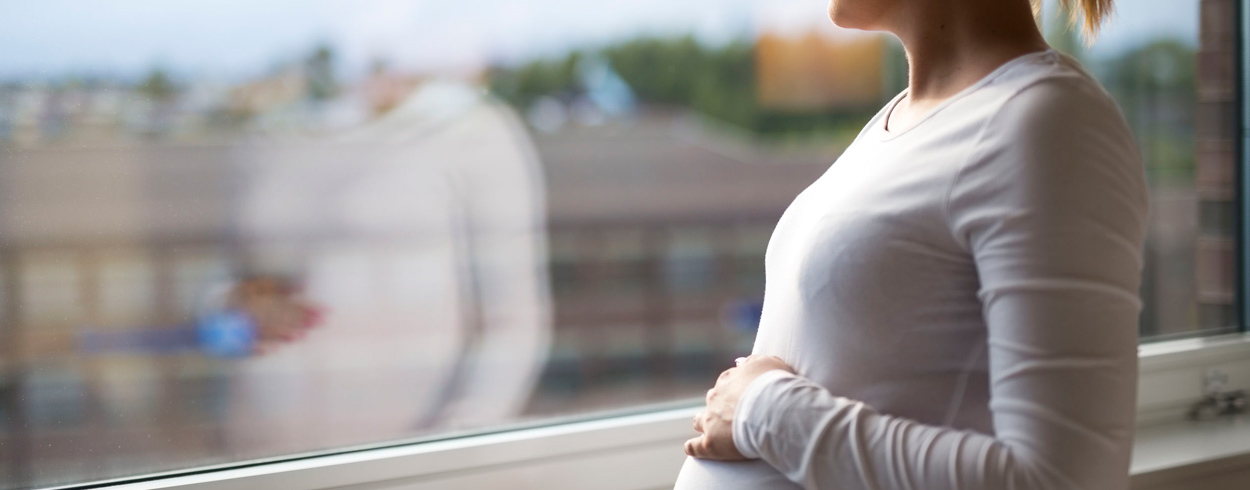
A mother with intoxicant abuse problems needs to be supported rather than blamed
Intoxicant use during motherhood is an emotionally volatile issue – it is often considered reprehensible for a mother to abuse intoxicants. For this reason, the threshold for seeking assistance can be high, even though it is crucially important for both the expectant mother and new child to get help.
About six per cent of expectant mothers are addicts.
“The baby turns in my belly and I keep on crying. Why can’t I stop? What’s gonna happen to us?”
About six per cent of expectant mothers in Finland are addicted to intoxicants. As many as 600-3,000 of the babies born each year have a foetal alcohol spectrum disorder. It is important to talk to all expectant parents about the effects of alcohol, because there is no safe limit for alcohol use during pregnancy. The only way to protect the growth and development of the foetus is to be teetotal.
How can we safeguard the rights of the baby to grow and develop safely in the womb? Pregnancy and early childhood have a crucial role in the overall development of the brain and child. For the sake of the baby in the womb, it is vitally important for the mother to make choices that protect the baby even before it is born.
Instead of blaming, support is needed
“When I learned I was pregnant, my life was chaotic. I was anxious and afraid. I wondered if someone like me should even be allowed to have a child.”
Intoxicant abuse by women has increased in recent years. Their number includes women who are pregnant and have babies at home. Motherhood and intoxicants are two words that do not go together. Pregnancy, motherhood and intoxicants are emotionally volatile issues. Attitudes towards intoxicant abusers can be cruel. Mothers who use intoxicants are often condemned as bad mothers, irresponsible and morally suspect.
However, sometimes life has taken a bad turn and the mother has succumbed to addiction. Instead of being blamed, mothers with intoxicant abuse problems need to be treated respectfully and provided with hopeful support for both their pregnancy and efforts to conquer their addiction.
For many mothers, pregnancy and childbirth represent a new opportunity to turn their life around and give up intoxicants. However, they need strong support for this change. Every mother must be given the opportunity to go into rehabilitation.
Becoming a parent can provide motivation to adopt an intoxicant-free lifestyle
“I went to get help – I told them about the situation I was in. My baby and I got into a ‘Pidä kiinni’ home for mothers with drug and alcohol problems. This calmed my restless mind.”
Every mother and parent hopes that their new child will be born healthy. However, reality does not always measure up to ideals of parenthood. Intoxicant abusers often have a long history of problems and traumas that impact on motherhood and efforts to conquer their addiction. However, the baby cannot wait – from the very first moments of pregnancy, it needs an intoxicant-free environment to grow and develop in.
The pregnancy period provides the mother with an opportunity for rehabilitation and to change her life – but the right kind of support is required. The first homes and drop-in units of the Pidä kiinni® care system (in Finnish) provide effective treatment and rehabilitation for expectant mothers and families with intoxicant abuse problems. Assuming the role of a parent motivates them to give up intoxicants and can give a new direction to their lives.
The trump cards of life are dealt in the womb!
Niina Kokko
The author is an expert in child-focused intoxicant abuse prevention at the Federation of Mother and Child Homes and Shelters. She wants to reduce the stigma associated with intoxicant abuse and encourage everyone to seek help.
Article picture: 123RF
 Chat
Chat